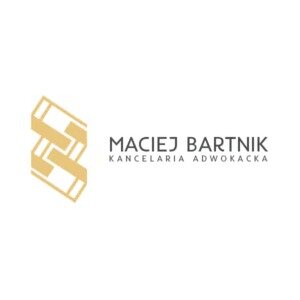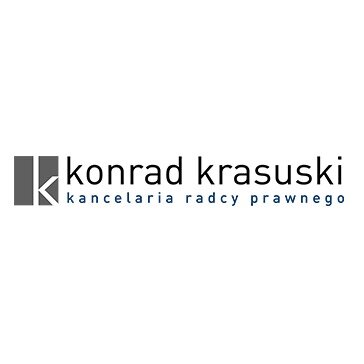Best Work Permit Lawyers in Poland
Share your needs with us, get contacted by law firms.
Free. Takes 2 min.
Or refine your search by selecting a city:
List of the best lawyers in Poland
About Work Permit Law in Poland
Work Permit law in Poland is designed to regulate the employment of foreign nationals in the country. As a general rule, non-EU citizens need a valid work permit to be employed legally in Poland. The permit is tied to a specific employer and position, meaning that if you wish to change jobs or positions, a new permit must be obtained. The Polish employer usually handles the application for the work permit, which is subject to various conditions such as labor market tests and compliance with Polish labor standards.
Why You May Need a Lawyer
While obtaining a work permit in Poland can be a straightforward process for some, there are several scenarios where legal assistance may be crucial:
- Denied Applications: If a work permit application is denied, a lawyer can help understand the reasons and advise on potential appeals or alternative solutions.
- Complex Situations: Cases involving transfer within multinational companies, freelance work, or family reunification may require specialized legal insight.
- Compliance and Renewals: Ensuring compliance with employment laws and handling complex renewal processes can benefit from legal expertise.
- Dispute Resolution: Legal problems arising from employment disputes or problems with employers need professional legal assistance.
Local Laws Overview
Several key legal aspects impact work permits in Poland:
- Types of Work Permits: There are several types, including permits for temporary and seasonal workers, intra-corporate transferees, and highly-skilled employees.
- Labor Market Test: For most types of work permits, Polish labor market needs must be considered before granting permits, meaning employers need to demonstrate efforts made to employ Polish nationals.
- Duration and Validity: Work permits are generally granted for up to three years, with the possibility of renewal.
- Employer Responsibilities: Employers must ensure foreign employees meet all the requirements related to work permits, including obtaining the necessary approvals and fulfilling employment contracts.
- Legal Amendments: Poland periodically updates its immigration and labor laws, so staying informed about the latest legal requirements is essential.
Frequently Asked Questions
What is a work permit?
A work permit is an official document that allows non-EU citizens to work legally in Poland. It is usually issued based on an employer's request.
Who needs a work permit to work in Poland?
Non-EU/EEA and non-Swiss citizens generally require a work permit to work in Poland legally, although there are some exceptions based on bilateral agreements and specific nationalities.
How long is a work permit valid in Poland?
Typically, a work permit is valid for up to three years but can be renewed subject to certain conditions.
Can I change my job with the same work permit?
No, work permits are usually issued for a specific job and employer. Changing jobs requires obtaining a new work permit.
What documentation is required for a work permit application?
Common documentation includes a valid passport, employment contract, proof of the necessary qualifications, and evidence that the employer has met local labor requirements.
What happens if my work permit application is denied?
You can appeal the decision or try to address the reasons for denial and reapply. Consulting with an immigration lawyer might improve your chances.
Can family members join me if I have a work permit in Poland?
Yes, typically family members can apply for residence permits to join you, but they may require separate work permits to work in Poland.
What are the consequences of working in Poland without a work permit?
Working without a permit can lead to fines, deportation, and potential bans from entering Poland or other EU countries in the future.
How do I renew my work permit?
You need to apply for a renewal before your current permit expires, providing updated documentation and justifying the continued need for your employment.
Is it possible to work in Poland while waiting for a work permit?
In most cases, you should wait for the work permit approval before starting work to avoid any legal issues.
Additional Resources
Consider reaching out to the following resources for help with work permit issues in Poland:
- Polish Office for Foreigners: They provide official guidance on residency and employment-related queries for foreign nationals.
- Local Polish Consulate or Embassy: For pre-move inquiries and assistance.
- Certified Immigration Lawyers: Professionals specializing in labor and immigration law can provide personalized advice.
- Legal Aid Organizations: Nonprofits offering free or low-cost legal assistance may help in certain cases.
Next Steps
If you need legal assistance in obtaining a work permit in Poland, consider taking these steps:
- Research: Gain a basic understanding of Polish work permit laws relevant to your scenario.
- Consultation: Contact a legal expert specializing in Polish immigration and labor law to discuss your specific needs.
- Documentation: Prepare necessary documents and information for your case as advised by legal counsel.
- Application and Appeal: Work with your lawyer to file applications correctly or to appeal if an application has been previously denied.
Lawzana helps you find the best lawyers and law firms in Poland through a curated and pre-screened list of qualified legal professionals. Our platform offers rankings and detailed profiles of attorneys and law firms, allowing you to compare based on practice areas, including Work Permit, experience, and client feedback.
Each profile includes a description of the firm's areas of practice, client reviews, team members and partners, year of establishment, spoken languages, office locations, contact information, social media presence, and any published articles or resources. Most firms on our platform speak English and are experienced in both local and international legal matters.
Get a quote from top-rated law firms in Poland — quickly, securely, and without unnecessary hassle.
Disclaimer:
The information provided on this page is for general informational purposes only and does not constitute legal advice. While we strive to ensure the accuracy and relevance of the content, legal information may change over time, and interpretations of the law can vary. You should always consult with a qualified legal professional for advice specific to your situation.
We disclaim all liability for actions taken or not taken based on the content of this page. If you believe any information is incorrect or outdated, please contact us, and we will review and update it where appropriate.
Browse work permit law firms by city in Poland
Refine your search by selecting a city.

















